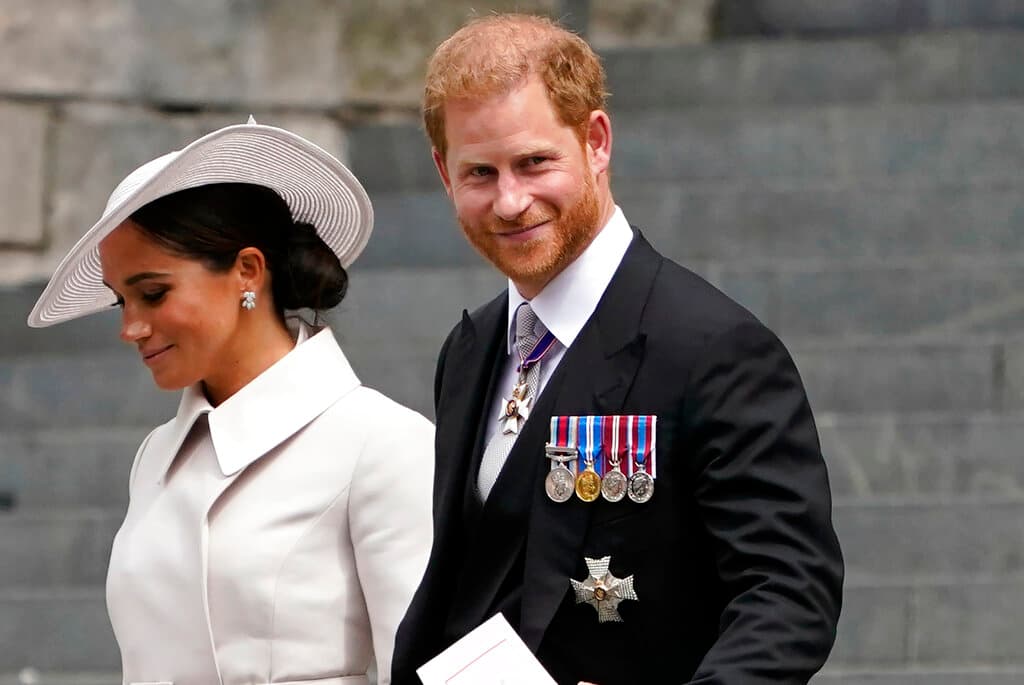Tuesday Deadline Looms in Prince Harry’s Visa Case Amid Questions Over His Admitted Drug Use, Political Meddling
The Biden administration will have to decide whether to let the public see why the British royal received a visa to America, despite admissions of illegal drug use that would disqualify other applicants.

A judge is giving the Biden administration until Tuesday to decide whether it will release Prince Harry’s visa application, thus offering the public a glimpse into why he’s allowed to reside in America despite his admissions of illegal drug use — something that’s disqualifying for other, less privileged applicants.
The district judge, Carl J. Nichols, has ordered the Department of Homeland Security to “either expedite” the Heritage Foundation’s “Freedom of Information Act request or give a final response as to whether or not they will release Prince Harry’s immigration records,” the director of the Margaret Thatcher Center for Freedom at Heritage, Nile Gardiner, told me.
While much attention is paid to Harry’s recent testimony in his lawsuit against newspapers back in the U.K., the case here in the U.S. seeking to answer just how he obtained a visa to enter, live, and work in America picked up steam earlier this week after the Washington, D.C., court’s ruling.
“If the Biden administration refuses to release current immigration records,” Mr. Gardiner said, “then a federal judge is going to decide whether or not the documents should be released — and if he decides that they should be released, they will be.”
Heritage argued before the court that the public has a right to see under what terms Harry entered the country and if he violated those terms with prohibited acts such as drug use, meddling in American politics, and working — all of which he’s either admitted to doing or done very publicly.
Many news stories refer to Harry’s “past” abuse of controlled substances, but the duke of Sussex, as I wrote in the Sun prior to the ruling, called “the use of plant-based psychedelics ‘one of the fundamental parts’” of his life, which indicates that he’s still using drugs such as cocaine, marijuana, and mushrooms as he relayed in his memoir, “Spare.”
“I started doing it recreationally and then started to realize how good it was for me,” Harry told a doctor specializing in trauma, Gabor Mate, in an interview during his book tour, adding that the mind-altering substances “changed me and helped me deal with the traumas and pains of the past.”
These statements meet the standard of the Immigration and Naturalization Act, which states that visa applicants who “admit to having committed” — note the past tense — “acts that constitute the essential elements of a violation of any law or regulation of a state, the U.S., or a foreign country relating to a controlled substance are inadmissible.”
Although there’s no legal exception to the statute, Harry obtained residence in America, raising questions over whether he made a false statement on the visa application or someone in the government looked the other way. In March, Heritage filed the FOIA request to find out which is the case.
“The federal judge is taking this case extremely seriously,” Mr. Gardiner said, calling this “an important matter for the American people,” on whose behalf he has sought transparency while “DHS has been stonewalling.” Now, he said, “a federal judge has instructed DHS to respond, and so this is very positive and in our view.”
“In the next few months,” Mr. Gardner believes, “there is a good chance that we can see the release of these documents eventually. So, we’re very positive, actually, about the overall outcome here” now that it’s in the court’s hands.
Prince Harry moved to America three years ago with his American wife, Meghan Markle, amid their rift with the royal family. The couple purchased a $14.7 million mansion at exclusive Montecito, California.
Once ensconced at Montecito, Harry and Meghan proceeded to intervene in American politics (including Harry’s denunciation at the United Nations of “the rolling back of constitutional rights here in the United States”) as well as work on Harry’s memoir, which was done with a ghostwriter. In addition to the admitted drug use, the politicking and working could also be immigration violations.
As disclosures came to light in Harry’s memoir not only of drug use but more notably about violent fights with his brother, Harry was also aggressively pursuing the British tabloids with lawsuits accusing them of violating his privacy. As recently as last week, he was on the witness stand at London in his lawsuit against the Mirror.
Harry and Meghan’s preoccupation with privacy, while airing their various grievances in public, was recently lampooned in an episode of “South Park,” which satirized a similar-looking royal couple who undertook a “worldwide privacy tour.”
As for the duke of Sussex’s immigration status, so far, DHS has prioritized Harry’s privacy over the American public’s right to know, and Mr. Gardiner found it “striking in the hearing that DHS focused heavily on the British press as part of their defense, describing the British press as something along the lines of obscure and niche.”
Mr. Gardiner pointed out that British publications like the Daily Mail and the Telegraph are “very, very big players on the global stage, including U.S. readership,” yet DHS “has focused heavily upon attacking British media,” acting more like palace guards than a federal agency in service of Americans.
At stake on Tuesday is not just whether a prince will get cut down to size, but the equal application of American law regardless of pedigree. The world will be watching, with citizens, immigrants, and visitors having a keen interest in just how Harry obtained a coveted visa — and what the Biden administration has been so keen to keep hidden.

